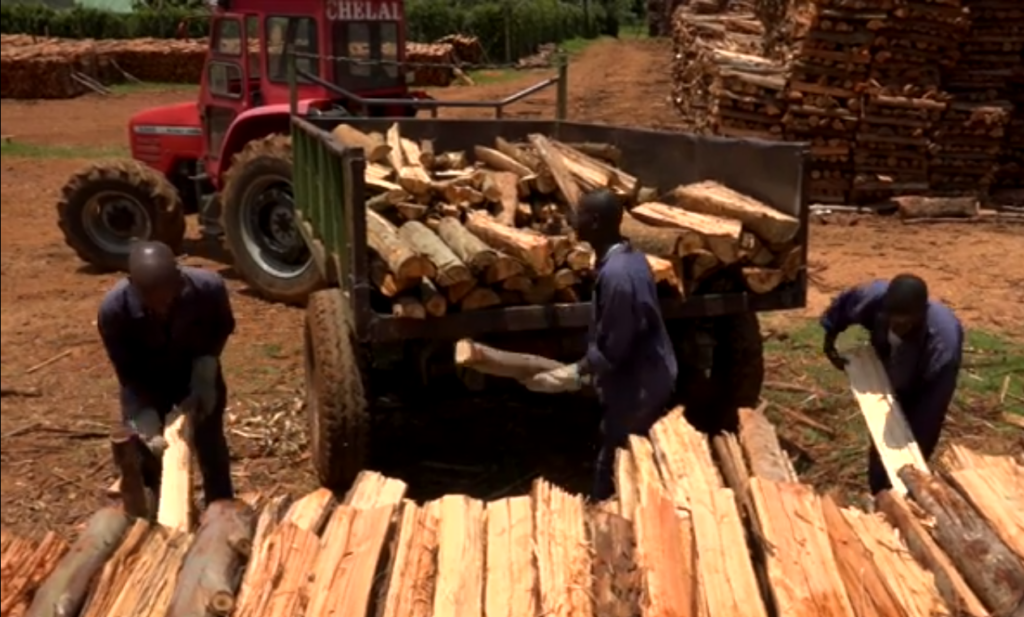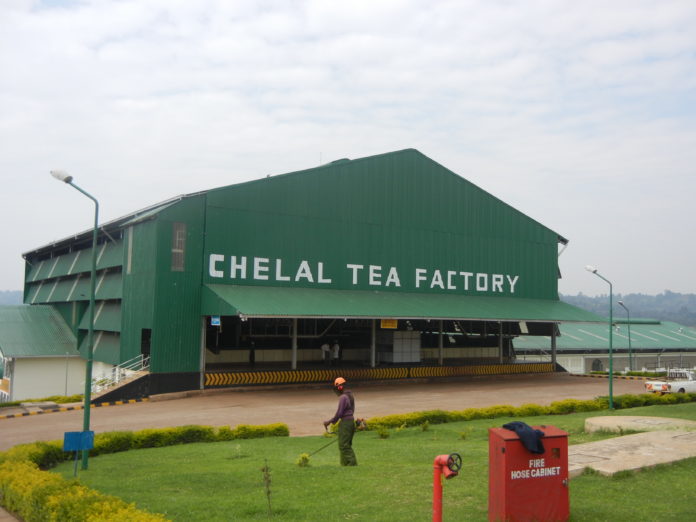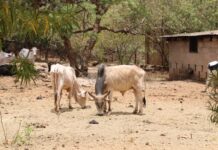|
Getting your Trinity Audio player ready...
|
By Winnie Kamau
At Chelal Tea Factory in Kericho County, farmhands load plunks of firewood into a truck which hauls the wood into a burning chamber where they are used in the processing of fresh tea leaves.
Above the factory’s roofs, smoke chimneys puffy clouds of smoke into the sky as workers feed more wood into the boiler.
The firewood is used in the factory to wither fresh tea leaves before they are oxidized and crushed. The withering process which also the major energy consumer in the factory, reduces the moisture content in the fresh green leaves by 30% making them limp and soft enough for rolling. Kenya is one of the leading tea producers in Africa and our tea is said to be one of the best quality-wise as we rank 3rd in the world after India and China.
Tea is Kenya’s leading agricultural foreign exchange earner and it is no wonder in 2017 we exported over 415 million Kgs of tea which fetched a 1.25 million USD while in 2018 474.86 million Kgs was exported fetching 1.37 million USD for Kenyan tea farmers this is according to Agriculture and Food Authority Report 2018.
Chelal tea factory which is among the 66 processing factories ran by Kenya Tea Development Authority (KTDA), and like in many tea factories most of the profits made in the global market are eaten up in the production costs. By the time the farmer get a hold of their bonus cheques as Kimathi, the factory manager would explain to us.

“Our energy consumption is generated by the use of wood and in a month we consume about 1500 cubic meters of firewood which translates to 3.4 million shillings a month,” says Kimathi.
But as climate change becomes more pronounced, the use of firewood is slowly being faced-out as tea factories shift to cleaner and more affordable renewable energy sources.
Renewable and sustainable energy solutions will bring the cost of production down in many tea factories. Most of these factories use 90% thermal heat generated from firewood while 10% is electricity that is used to light up the factories.
Chelal tea factory is a satellite factory of Letin tea factory and they mill over 15 million Kgs of green leaf tea annually alongside 3.45 million Kgs of ready to drink tea.
At the factory, engineers of a Swedish company Absolicon have partnered with WWF-Kenya and are here to discuss the adoption of the new technology It offers a unique concentrator parabolic trough with both photovoltaic solar cells and solar thermal panel that generates both electricity and heat energy.

“Factories in Kenya for a long time have relied on firewood as the source of their thermal heat whereas this has happened for long, it may not be sustainable in the future. For one, the smallholder tea farmers costs have gone up as a result of that” explains Philip Odhiambo, the WWF Kenya Energy Expert.
“Sustainability is always a difficult question in assessing the use of firewood. It is not a sustainable solution especially when the sun is available and could do an equally good job” says Johan Sundqvist project manager at Absolicon.
From Absolicon once the solar system is installed, the cost of 3 years of firewood investments will have Chelal’s energy needs covered. They make solar collectors that collect heat, unlike the PV systems that make electricity. Once the parabolic system is installed the heated water will be turned into steam where the hot air is now blown over the tea leaves to dry it up.
Tealand manufacturers in Kericho is the local partner in the county and will help in installation and the maintenance panels alongside Absolicon “The solutions we have are Absolicon solar collectors, they are solar panels that create heat. What most people have been selling are solar PVs but we decided to look at other areas that require retention and that is the solar collectors, “says Parminder Hunjan the managing director at Tealand
In welcoming the project during its launch Energy Petroleum Regulatory Authority (EPRA) Director-General Pavel Omieke expressed his optimism in the project saying it will have a long-lasting impact on Tea factories that utilize steam systems
“Energy switching is a viable option for improving energy efficiency in the making of tea. The proposal to introduce the solar concentrator technology in the tea industry if well implemented will see a reduction in the overall energy intensity of tea processing in the country” said Pavel.
Chelal manager Kimathi noted the urgency to embrace different technologies in a bid to save up on the energy costs.
“The biggest cost is energy. For every 1kg of tea, 10shillings goes to covering the energy costs which is in heat generation. Another better source of energy would be the sun, which is harvested, the heat would be a better alternative to using wood because of the environmental impact it has.” says Kimathi
In reassuring the use of the solar energy system Markus Tallre, Absolicon Engineer noted that “We work with solar heat and currently the solar collectors we have are actually the best in the world.”














